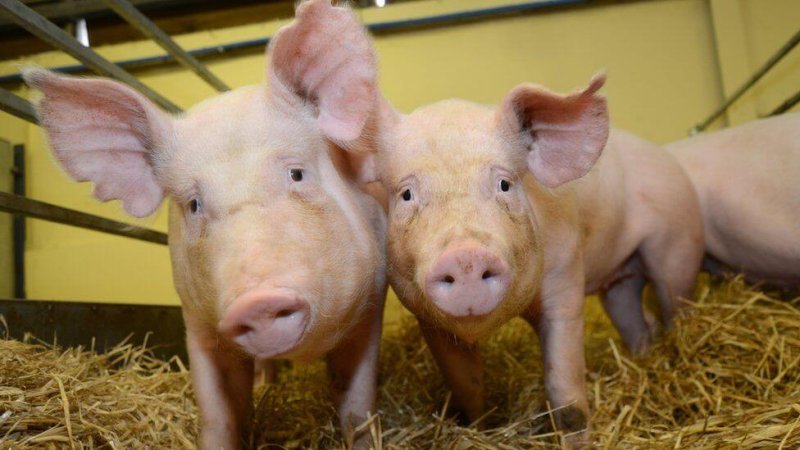For the first time, scientists have decoded the whole genetic make-up of pigs in a development that they say will facilitate the discovery of genetic variations linked to key traits.
…
The scientists characterized the genomes of two different pigs – a sow from the Duroc breed and a male crossbred white composite boar, and included detailed information of a further 11 pigs from European and Asian breeds.
The findings could help improve selective breeding and enable more accurate use of gene-editing technologies to develop pigs with desired characteristics, such as resistance to infectious diseases, the researchers said.
Knowledge of the genome also enables identification of genetic similarities between pigs and humans, which will enhance biomedical research in which pigs are used as models to study human health.
Alan Archibald, UK study lead and personal chair of mammalian molecular genetics at the Roslin Institute, University of Edinburgh, said: “Pork is the most popular of all meats and, with a growing global population, we need to improve the sustainability of food production.
“The improved knowledge of pigs’ genetic make-up will help farmers breed healthier and more productive animals.”































